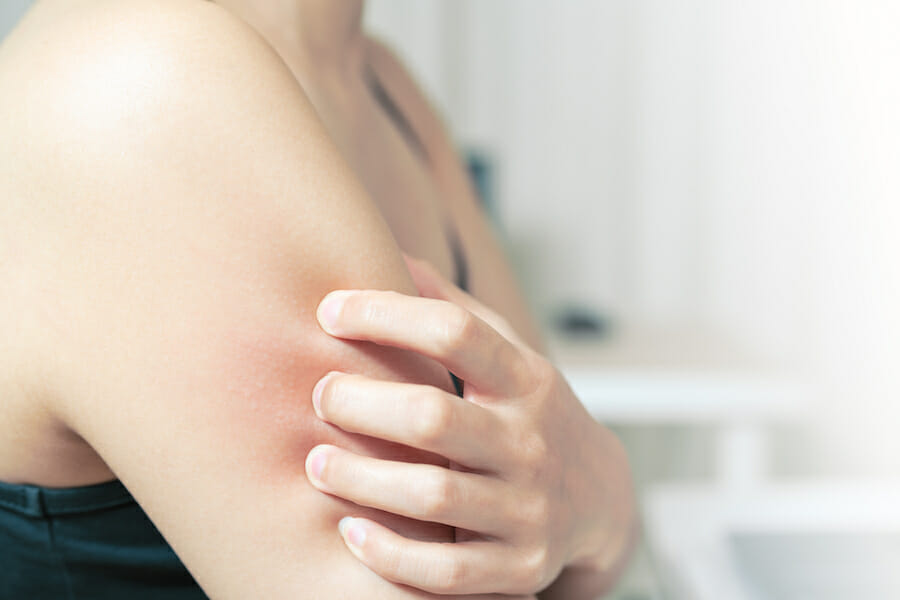
If you’ve recently relocated to Arizona and find your skin unusually dry, itchy, or irritated, the famous “dry heat” might not be the only cause. Along with its low humidity, Arizona is also known for having some of the hardest tap water in the United States. In fact, according to the U.S. Geological Survey, Arizona ranks among the top five states with the highest levels of water hardness.
Even if you don’t typically struggle with skin issues, you’re likely to feel the impact of hard water on your skin. For those already managing conditions like eczema or dermatitis, however, the effects can be even more severe. Recent research has linked living in areas with hard water to an increased risk of developing atopic dermatitis—a condition that leads to dry, flaky, and itchy skin.
If you deal with psoriasis, eczema, acne, or rosacea, Arizona’s hard water could be contributing to your symptoms. Keep reading to learn how hard water may be affecting your skin—and discover solutions to help protect and restore your skin’s health.
How Hard Water Affects Your Skin
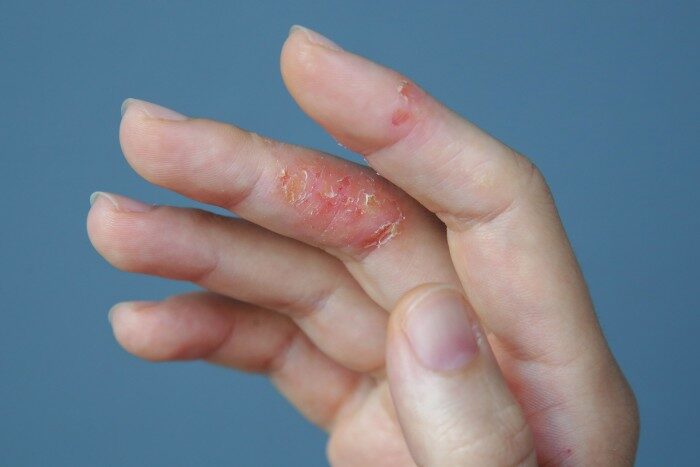
While it might seem strange to think of water as a skin irritant, factors like pH levels, temperature, and the presence of dissolved particles can all influence skin health. Among these, water hardness stands out as particularly damaging.
As Lily Talakoub, M.D., explains in Dermatology News, “Compared to soft water, skin exposed to hard water experiences greater disruption of the natural moisturizing factors and damage to the corneocyte layers (the outermost skin cells), weakening the skin’s protective barrier.“
In simple terms, the minerals found in hard water can weaken the skin’s outer layer, making it harder for the skin to retain moisture and shield itself from environmental irritants. Hard water also makes it more difficult to fully rinse away soap and residue, leading to buildup that can clog pores.
With repeated exposure over time, hard water can cause:
- Inflammation
- Irritation
- Redness
- Persistent itchiness
- Significant dryness
Those living with eczema, psoriasis, acne, or rosacea may notice that their symptoms worsen with continual contact with hard water. Up next, we’ll explore in more detail how hard water affects these specific skin conditions.
The Link Between Hard Water and Eczema
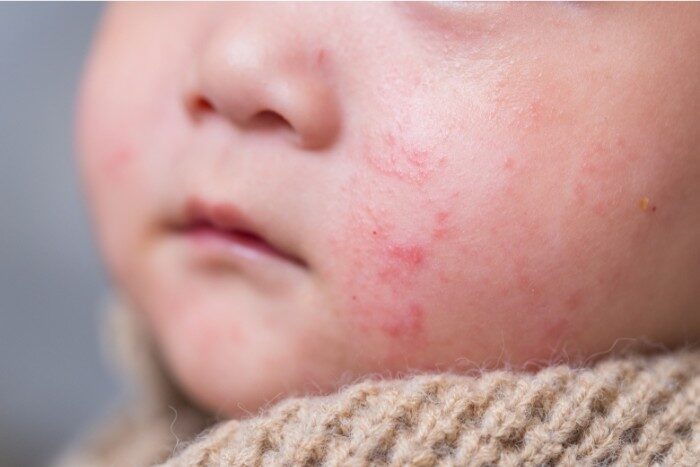
Hard water eczema is a well-documented phenomenon. Eczema is a chronic skin condition characterized by dry, itchy, inflamed skin, and hard water is one of many environmental factors that can trigger or aggravate it.
The minerals in hard water strip natural oils from the skin, weakening its protective barrier and making it more vulnerable to irritation and allergens. If you or your child struggles with eczema, switching to softened water could noticeably reduce flare-ups and improve overall skin comfort.
How Hard Water Impacts Psoriasis
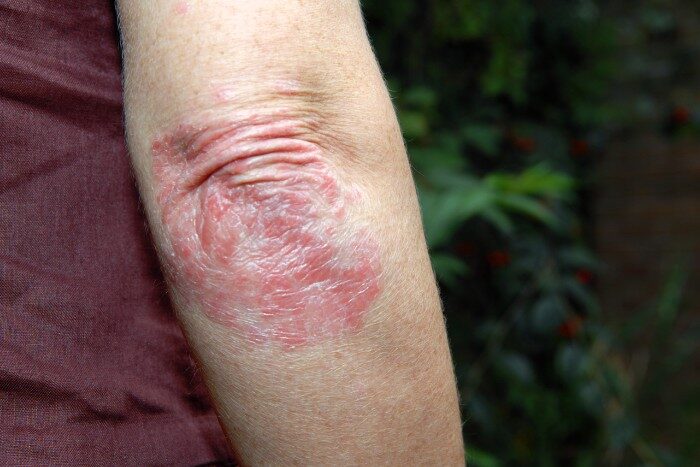
Psoriasis causes rapid skin cell turnover, leading to scaly, inflamed patches. Like eczema, psoriasis worsens when the skin is overly dry.
Hard water’s mineral content further strips moisture from the skin, often triggering increased flaking, cracking, and irritation. Managing psoriasis symptoms relies heavily on keeping the skin hydrated, and avoiding the drying effects of hard water is an important step in achieving this.
Hard Water’s Connection to Acne
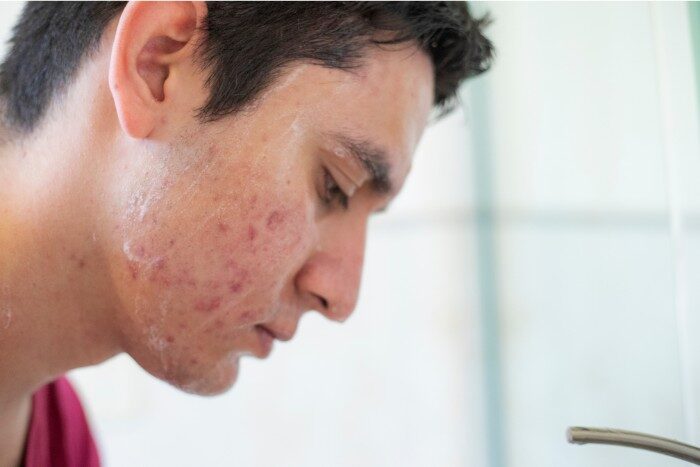
Acne is the most widespread skin condition in the United States, impacting up to 50 million Americans annually, according to the American Academy of Dermatology. Although it is most common among teenagers, acne can develop at any stage of life.
The condition is tied to bacteria affecting oil-producing glands beneath the skin, which are influenced by the adrenal glands. Factors like diet, certain medications, and stress can contribute to acne, but the underlying causes can vary widely from person to person.
Hard water can worsen acne symptoms by leaving behind mineral deposits that clog pores. “Calcium from hard water settles on the skin and alters the skin’s natural oil chemistry, reducing its ability to properly moisturize,” explains New York dermatologist Dennis Gross, M.D.
Hard Water and Rosacea: A Sensitive Issue
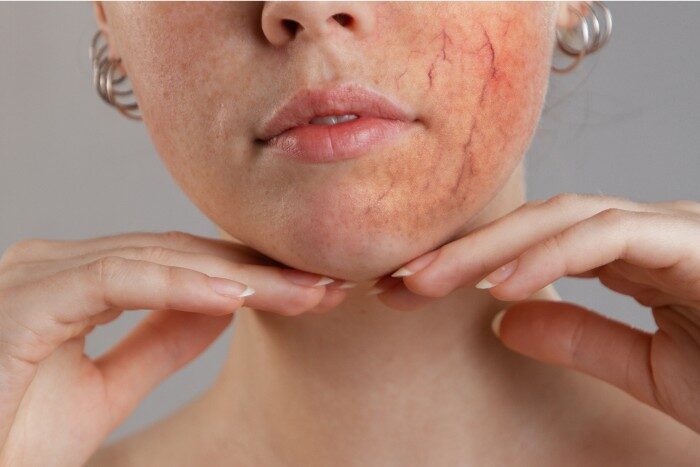
Rosacea is frequently confused with other skin conditions because it also causes inflammation, leading to facial redness, pimples, and visible blood vessels.
The exact cause of rosacea remains unclear, but experts believe it stems from a mix of genetic predisposition and environmental triggers. It is most commonly seen in middle-aged women with fair complexions, and treatment typically involves topical therapies, antibiotics, and dietary adjustments to manage flare-ups.
Similar to acne, hard water can worsen rosacea by irritating the skin and contributing to clogged pores. Many patients are advised to use only mild, non-irritating cleansers, and dermatologists often suggest rinsing with distilled water to help minimize irritation on sensitive areas.
How to Shield Your Skin from the Effects of Hard Water
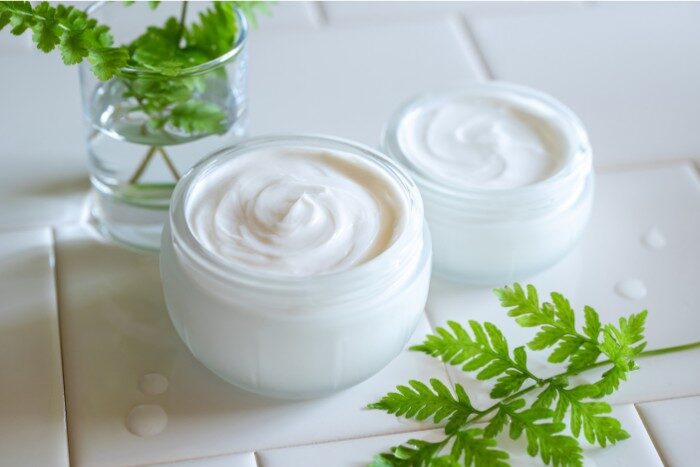
While hard water can be tough on your skin, there are effective ways to reduce its impact and keep issues like dryness, redness, and irritation under control. Follow these three strategies to help protect your skin from the damaging effects of mineral-heavy water:
Install a Water Softener System
Water softeners work by removing calcium and magnesium through a process called ion exchange. This transforms your home’s tap water into “soft” water, which lathers better with soap and is much gentler on the skin.
For anyone dealing with skin concerns, adding a water softener can be a game-changer. A recent study in dermatology supports this, noting that ion exchange systems significantly reduce the negative skin reactions linked to hard water exposure.
Keep Skin Hydrated with Moisturizers
To offset the drying impact of hard water, apply a daily moisturizer rich in ceramides. These natural lipids help reinforce the skin’s protective barrier and lock in moisture.
Not only do ceramides help replenish what hard water strips away, but research also suggests they defend against environmental irritants such as pollution—adding another layer of protection for sensitive skin.
Choose Cleansers with Chelating Agents or Glycerin
Opt for soaps or facial cleansers that include chelating agents like citric acid, EDTA, or sodium phytate. These ingredients bind to minerals in the water, helping prevent residue buildup on your skin.
Clear glycerin soaps are also a smart choice. Unlike traditional soaps, they don’t react with hard water, and they offer the added benefit of retaining moisture and shielding skin from environmental stressors.
Install a Water Softener in Your Arizona Home
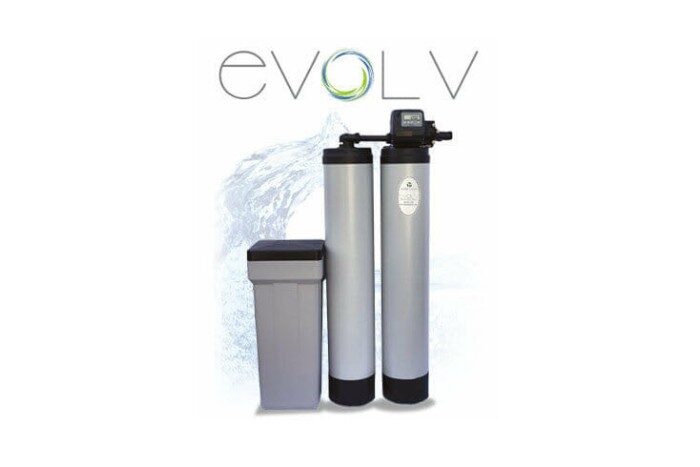
In Arizona, where hard water is a daily reality, taking steps to soften your water can make a noticeable difference, not just for your skin, but for your home overall.
A water softener eliminates excess minerals, turning hard tap water into soft water that’s easier on your skin, scalp, and even your plumbing. With soft water, your hair will feel cleaner, your appliances will stay in better shape, and your pipes will be free from scale buildup.

Clear Water Concepts has decades of experience helping homeowners across the Phoenix area combat the effects of hard water. Contact our team today to learn more about your options and get a custom quote for a water softener system that fits your home and needs.


